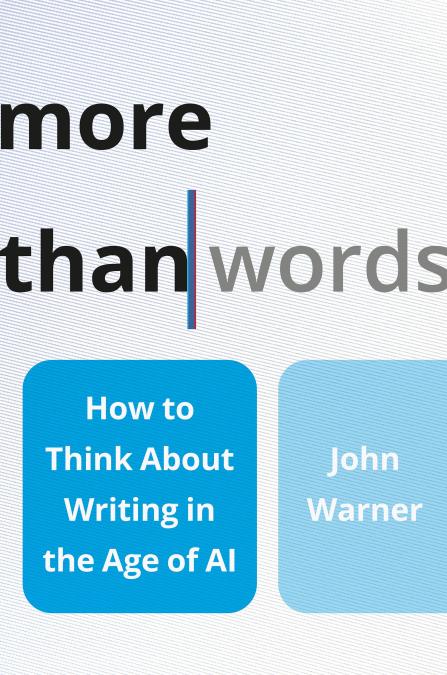Shopping Cart
More Than Words
How to Think About Writing in the Age of AI
Description
A veteran writing teacher makes a powerful argument that writing is a form of thinking and feeling and shows why it can’t be replaced by AI
In the age of artificial intelligence, drafting an essay is as simple as typing a prompt and pressing enter. What does this mean for the art of writing? According to longtime writing teacher John Warner: not very much.
More Than Words argues that generative AI programs like ChatGPT not only can kill the student essay but should, since these assignments don’t challenge students to do the real work of writing. To Warner, writing is thinking—discovering your ideas while trying to capture them on a page—and feeling—grappling with what it fundamentally means to be human. The fact that we ask students to complete so many assignments that a machine could do is a sign that something has gone very wrong with writing instruction. More Than Words calls for us to use AI as an opportunity to reckon with how we work with words—and how all of us should rethink our relationship with writing.
Newsletter Signup
By clicking ‘Sign Up,’ I acknowledge that I have read and agree to Hachette Book Group’s Privacy Policy and Terms of Use
